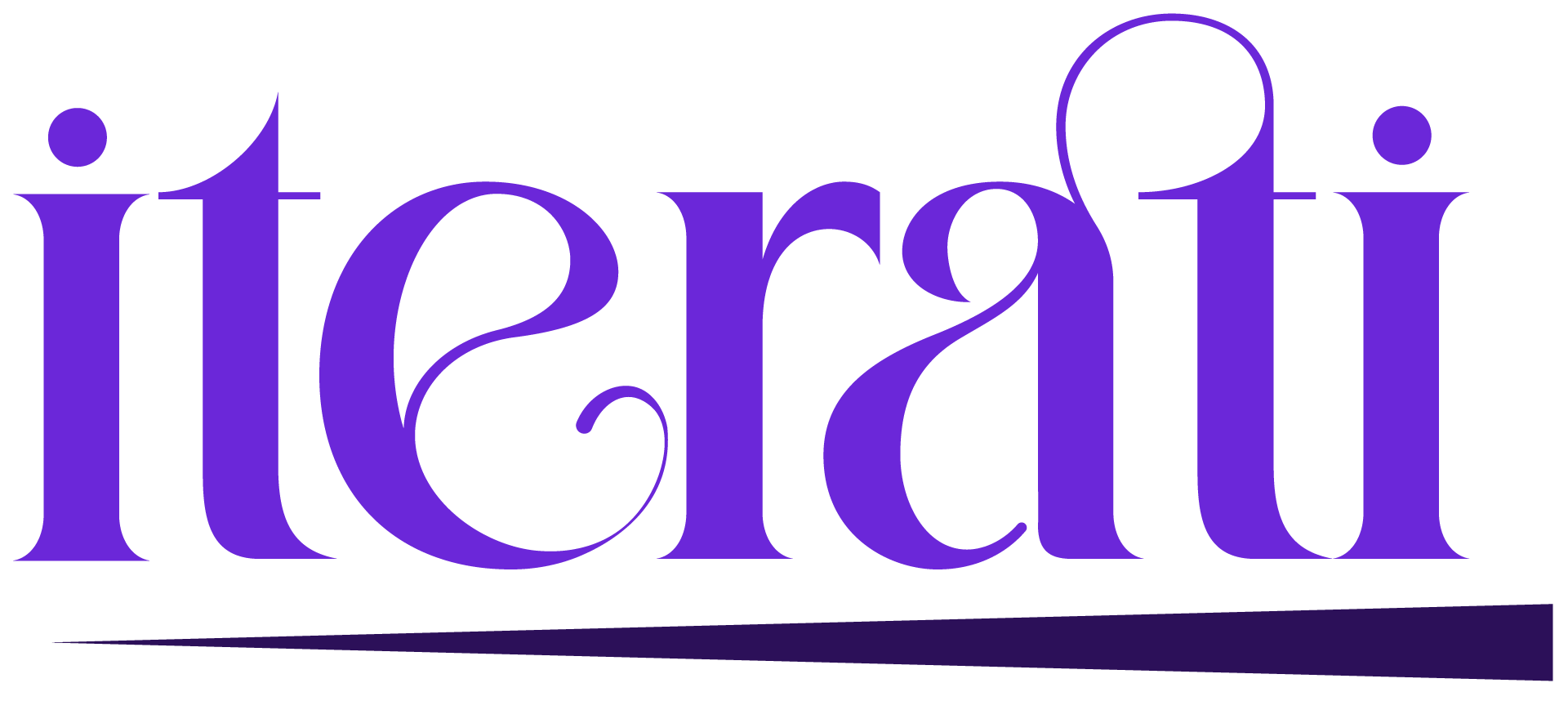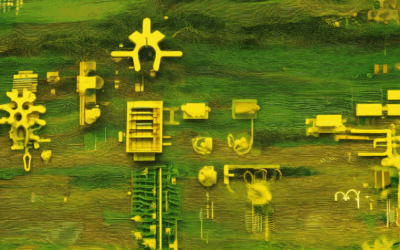Explore how tech and business trends are intersecting to drive innovation and reshape industries. In today’s fast-paced world, the convergence of technological advancements and shifting business landscapes creates a dynamic environment where these trends influence each other, fostering new opportunities and challenges. From artificial intelligence to sustainable practices, from remote work to digital transformation, the ways in which tech and business trends overlap are profound and far-reaching. This article delves into the intricate relationships between these trends, examining their impacts on innovation, competition, and the global economy. By uncovering how current tech and business trends are shaping the future, we’ll explore the strategies companies are adopting to remain competitive and the innovations poised to transform industries.
Key Takeaways
- Artificial Intelligence and Machine Learning are driving efficiency and innovation across industries, supported by companies like Iterati.
- Sustainability initiatives are pivotal, with green technologies and circular economy models reducing environmental impact and aligning with consumer preferences.
- Remote Work and Hybrid Models have reshaped the workforce, enabled by tools like Zoom and Microsoft Teams, fostering productivity and collaboration.
- Blockchain Technology is revolutionizing industries beyond finance, enhancing security and transparency in supply chains and healthcare.
- Cloud Computing and Edge Computing provide scalable solutions and reduced latency, crucial for modern business operations.
- Spatial Computing and AR/VR are transforming interactions, from gaming to education, as explored by McKinsey.
- Biotechnology and Gene Editing unlock new possibilities in medicine and agriculture with precise tools like CRISPR-Cas9.
- The Metaverse offers new opportunities in virtual collaboration, education, and tourism, blending VR, AR, and blockchain technology.

How Are Tech and Business Trends Influencing Each Other and Shaping the Future of Innovation?
Tech and business trends are deeply intertwined, driving innovation and transforming industries in ways that were unimaginable just a decade ago. These trends don’t just happen in isolation—they influence each other, creating a dynamic ecosystem that propels progress. Here’s how they’re shaping the future:
Mutual Influence Between Tech and Business Trends
Tech advancements often set the stage for business transformations. For instance, the rise of artificial intelligence (AI) has led to significant shifts in industries ranging from healthcare to finance. Businesses are now investing heavily in AI-driven solutions, pushing tech innovation further. Conversely, business needs also drive tech development. The demand for more efficient supply chains has accelerated the evolution of automation and logistics technologies.
Examples of Collaboration Between Tech and Business Trends
One notable example is the integration of cloud computing into business operations. Companies like AWS and Microsoft have become household names not just because of their technological prowess but because businesses across industries rely on their services to streamline operations. Competitors like IBM and Oracle have also adapted by offering cloud-based solutions, showcasing how tech trends can reshape entire sectors.
Another area of collaboration is the rise of remote work. Tech trends like Zoom and Slack have transformed how businesses operate, enabling global teams to collaborate effectively. This shift has not only changed workplace dynamics but also influenced tech innovation by driving investments in video conferencing and collaboration tools.
The Future Outlook
Looking ahead, the convergence of tech and business trends will likely accelerate even more. Emerging technologies like blockchain, Web3, and advanced AI promise to disrupt traditional business models. Companies that can harness these technologies effectively will gain a competitive edge. At the same time, businesses will continue to shape tech development by demanding solutions that solve real-world problems.
Exploring Further Resources
To dive deeper into how tech and business trends intersect, check out Iterati’s articles on Digital Transformation and Tech Trends . We provide insights into the latest innovations and strategies for businesses looking to thrive in a rapidly evolving world.
Current Tech and Business Trends Shaping the Global Economy
The global economy is undergoing significant transformations driven by technological advancements and shifting business models. These trends are reshaping industries, altering consumer behaviors, and creating new opportunities for innovation. Below is an analysis of the most prominent tech and business trends impacting the world today.
Digital Transformation Across Industries
Digital transformation continues to accelerate across various sectors, from healthcare to finance. Companies are adopting digital tools to enhance efficiency, improve customer experiences, and innovate products. The rise of AI-driven solutions, cloud computing, and big data analytics has enabled businesses to make data-driven decisions and streamline operations. This shift has led to the creation of entirely new industries and the disruption of traditional ones, forcing organizations to adapt or risk falling behind.
AI and Machine Learning Integration
Artificial intelligence and machine learning technologies are revolutionizing nearly every aspect of the global economy. From automating manufacturing processes to personalizing marketing strategies, AI is becoming a cornerstone of modern business practices. Companies that leverage AI are gaining a competitive edge, enabling faster decision-making, improved productivity, and better resource allocation. However, the widespread adoption of AI also raises ethical concerns, particularly regarding job displacement and data privacy, which are prompting regulatory reforms globally.
Sustainability and Green Technology
Sustainability has become a critical focus for businesses and governments alike. The push toward green technologies, renewable energy, and eco-friendly practices is not just a moral imperative but also a growing market opportunity. Companies that invest in sustainability are often seeing better returns, as consumers increasingly favor brands that align with their values. This trend is driving innovation in areas like electric vehicles, solar energy, and circular economy models, reshaping traditional supply chains and fostering collaboration among stakeholders.
Remote Work and Hybrid Models
The COVID-19 pandemic accelerated the shift toward remote work, and many companies have embraced hybrid models as the new normal. This trend has implications for both businesses and employees, with flexibility becoming a key factor in workplace dynamics. The rise of remote work tools and collaboration platforms has democratized access to talent, allowing smaller organizations to compete on a larger scale. At the same time, this shift has prompted questions about workforce management, office culture, and the future of work in a post-pandemic world.
Shift in Consumer Behavior
Consumer behavior is being significantly influenced by the rapid pace of technological change and increased accessibility of digital services. Consumers are demanding personalized experiences, faster delivery, and greater transparency. This shift is driving changes in how businesses operate, from e-commerce strategies to customer service approaches. Companies that fail to adapt to these evolving expectations risk losing market share to more agile competitors.
In conclusion, the current tech and business trends are characterized by rapid innovation, sustainability efforts, and digital transformation. These factors are collectively shaping the global economy, influencing industries, and altering how consumers interact with businesses. As these trends continue to evolve, organizations must remain adaptable to stay competitive and capture new opportunities.

Impact of Current Tech Trends on Business Strategies
Modern technological advancements are significantly influencing business strategies, driving innovation, and reshaping traditional models. Companies are increasingly adopting digital tools to enhance efficiency, engage customers, and stay competitive. Key trends include:
- Digital Transformation : Businesses are prioritizing digitalization to streamline operations, improve customer experiences, and expand market reach. Technologies like cloud computing, AI, and big data analytics enable smarter decision-making and operational excellence.
- AI and Machine Learning : Integration of AI and ML into business processes is revolutionizing industries, from healthcare to finance. Companies leverage predictive analytics and automation to gain a competitive edge and deliver personalized services.
- Remote Work and Hybrid Models : The shift towards remote work has changed talent acquisition strategies, with many organizations investing in collaboration tools and flexible infrastructure to attract top talent globally.
- Sustainability and Green Technology : Eco-consciousness is driving businesses to adopt sustainable practices. Companies are reducing carbon footprints, utilizing renewable energy, and incorporating circular economy principles to align with global standards and consumer expectations.
Adaptation Strategies for Staying Competitive
To navigate these changes, companies are adopting agile strategies, investing in workforce development, and fostering innovation. Here are key adaptations:
- Embracing Innovation : Continuous investment in R&D and partnerships with tech firms ensures businesses remain at the forefront of industry trends. Companies like Iterati exemplify this approach by leveraging cutting-edge tools to solve complex challenges.
- Agile Transformation : Adopting agile methodologies allows businesses to adapt quickly to market shifts. This iterative approach enables faster implementation of new technologies and strategies, ensuring responsiveness to changing customer demands.
- Investing in Talent : Organizations are focusing on upskilling employees and building cross-functional teams to drive innovation. Collaborative environments foster creativity and adaptability, crucial for thriving in dynamic markets.
- Customer-Centric Approaches : Leveraging data analytics, businesses are personalizing products and services to meet individual customer needs. This focus on customer experience differentiation helps build loyalty and market share.
The Road Ahead
As technology continues to evolve, businesses must stay proactive. Companies that embrace these trends not only survive but thrive, setting new industry standards. By fostering innovation, leveraging emerging technologies, and prioritizing customer needs, businesses can secure their future in an ever-changing landscape.
For further insights and resources, explore Iterati ‘s comprehensive guides on navigating tech trends and optimizing business strategies.

How Are the Latest Tech and Business Trends Shaping the Future of Innovation?
At Iterati, we’re dedicated to exploring the cutting-edge technologies and business strategies that are transforming industries worldwide. Here’s our take on the latest trends shaping the future of innovation:
1. Artificial Intelligence and Machine Learning
AI and ML continue to revolutionize every sector, from healthcare to finance. Companies like Iterati specialize in harnessing these technologies to drive efficiency and innovation. By leveraging advanced algorithms, businesses can automate processes, analyze data, and make smarter decisions, paving the way for personalized experiences and predictive analytics.
2. Sustainability and Green Technology
The push for eco-friendliness is driving unprecedented innovation. Technologies like renewable energy systems, carbon capture, and circular economy models are gaining traction. Companies are adopting sustainable practices not just for regulatory compliance but to align with consumer preferences and corporate social responsibility goals.
3. Remote Work and Hybrid Models
The pandemic accelerated the adoption of remote work, and many companies are now embracing hybrid models. Tools like Zoom, Slack, and Microsoft Teams have become staples, enabling teams to collaborate effectively regardless of location. This shift has also led to innovations in productivity apps and workplace management software.
4. Blockchain and Decentralized Systems
Blockchain technology is reshaping industries beyond cryptocurrency. Its applications in supply chain management, healthcare records, and voting systems are proving its versatility. Platforms like Gartner highlight blockchain as a transformative force in innovation.
5. Cloud Computing and Edge Computing
Cloud computing remains a cornerstone of modern innovation, offering scalable solutions for businesses. Edge computing, which processes data closer to the source, is emerging as a critical component, reducing latency and enhancing real-time decision-making.
6. Spatial Computing and AR/VR
Spatial computing is bringing augmented reality and virtual reality into mainstream applications. From gaming to education, AR/VR is transforming how people interact with digital content. Companies like McKinsey are exploring its potential across various sectors.
7. Biotechnology and Gene Editing
Advancements in biotechnology, particularly in gene editing, are unlocking new possibilities for treating diseases and improving agriculture. CRISPR-Cas9 technology is at the forefront of these innovations, offering precision and efficiency that were unimaginable just a decade ago.
8. The Rise of the Metaverse
The metaverse is becoming a focal point for innovation, blending virtual reality, augmented reality, and blockchain technology. Its potential extends beyond entertainment to areas like virtual collaboration, education, and virtual tourism, creating new opportunities for businesses and creators.
These trends are not just individual innovations—they’re interconnected and amplifying each other. At Iterati , we believe that embracing these changes thoughtfully will be key to navigating the future of innovation and staying competitive in a rapidly evolving world.
What Are the Leading Tech and Business Trends Influencing Modern Economies?
Modern economies are being shaped by a confluence of transformative tech and business trends, each driving innovation and reshaping industries. Here are the most prominent ones:
- Digital Transformation : Businesses are increasingly adopting digital tools to enhance efficiency and customer experiences. Technologies like AI, cloud computing, and IoT are at the forefront of this movement.
- Sustainability and Green Energy : Companies are prioritizing eco-friendly practices, investing in renewable energy, and embracing circular economy models to reduce environmental impact.
- Remote Work and Hybrid Models : The shift towards remote work has accelerated, with many organizations adopting hybrid work models to balance flexibility and collaboration.
- Data-Driven Decision Making : Access to vast amounts of data enables companies to make informed decisions, optimize operations, and personalize customer experiences.
- Blockchain Technology : This decentralized ledger system is revolutionizing industries like supply chain management, finance, and healthcare through enhanced security and transparency.
- The Gig Economy : The rise of platforms like Uber and Airbnb has created a new class of workers who operate independently, reshaping traditional labor markets.
- Urbanization and Smart Cities : Rapid urbanization is driving demand for infrastructure, housing, and smart city solutions powered by advanced technologies.
- Cross-Border E-commerce : Global trade is thriving online, facilitated by platforms like Alibaba and Amazon, which connect businesses and consumers worldwide.
- The Metaverse : This immersive virtual reality space is becoming a new frontier for business, offering unique opportunities in gaming, virtual events, and virtual real estate.
These trends are not only shaping how businesses operate but also influencing global economic growth and consumer behavior. By staying ahead of these developments, companies can position themselves for long-term success in an evolving landscape.

How Do Tech and Business Trends Interrelate and Shape the Future of Industry Growth?
Tech and business trends are deeply intertwined, driving innovation and reshaping industries. Here’s how they influence each other and contribute to long-term growth:
- Technological Advancements : Emerging technologies like artificial intelligence, blockchain, and IoT are revolutionizing businesses. Companies adopting these tools gain competitive advantages, fostering growth through efficiency and innovation.
- Sustainability Focus : Increasing awareness of environmental issues has led to trends like green tech and circular economy. Businesses embracing sustainable practices not only reduce costs but also align with consumer preferences, boosting market position.
- Remote Work and Collaboration Tools : The pandemic accelerated the adoption of remote work and collaboration software. This shift has become a permanent feature of business operations, enabling global talent pools and flexible work models.
- Digital Transformation : Organizations are increasingly migrating to digital platforms. This transformation drives innovation, enhances customer experiences, and opens new revenue streams, ensuring sustained growth.
These trends create a feedback loop, where technological innovations enable business model shifts, which in turn demand further technological integration. Companies that adapt proactively tend to thrive in dynamic markets.
For instance, Iterati.org highlights how digital transformation is a cornerstone of modern business evolution. By leveraging advanced tools and strategies, companies can navigate uncertainties and capitalize on emerging opportunities.
The future of industry growth lies in the continuous interplay between technological progress and strategic business decisions. Companies that stay attuned to these trends position themselves for sustained success in an ever-evolving landscape.
Explore more insights on Iterati.org to discover how businesses can harness these trends for growth and innovation.




0 Comments